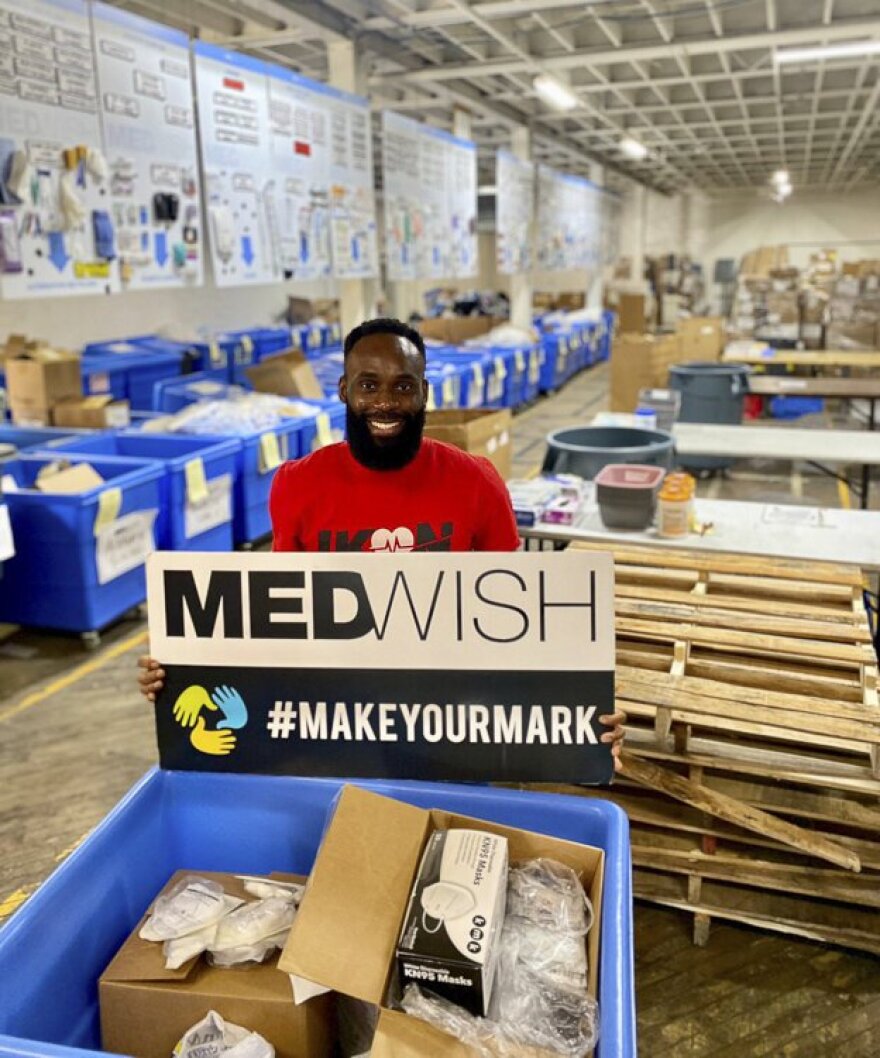This is part two in a four-part series studying the inequalities in the healthcare system for members of the refugee community in Cleveland. Read part one here.
Ikenna Ogwuegbu is on a mission — not only to treat sick patients but to also heal health inequalities in Cleveland.
The Nigerian-born pharmacist was completing his pharmacy sciences studies at Cleveland State University in 2019 and wanted to provide quality healthcare for underserved Cleveland communities so he founded IKON Health Foundation, which provides preventative health services, benefits enrollment, dental care and education about the healthcare system through its clinics.
Ogwuegbu said he hopes to address one of the underlying barriers for the refugee community: The lack of culturally competent healthcare providers that come from refugee communities themselves.
Building Trust
Since its official establishment in 2021 as a registered nonprofit, IKON has hosted four community health fairs in partnership with Salaam Clinic in Midtown and local refugee leaders. To date, Ogwuegbu estimated the clinics have helped 160 patients receive essential services.

Much of his success has hinged on Ogwuegbu’s ability to build trust with immigrant communities, where patients rarely encounter healthcare workers that look like them.
“When you look at doctors in America, less than 5% of them are Black,” he said. “Switch that to pharmacy — that number hovers around 8%. With the medical history in this country centered around African Americans and Black people in general, the connection and the trust is not there between us and healthcare providers.”
That trust is particularly important for refugee communities. Studies have found that while African immigrants have high rates of mental health and chronic illnesses, they are often hesitant to access the American healthcare system — primarily because of the absence of providers that understand their cultural backgrounds.
Ogwuegbu said he hopes that his and other immigrant leaders’ presence at community clinics will help engender that trust.
“Part of the reason I founded this foundation was seeing how my presence alone can impact patients,” he explained. “At one of my rotations in Downtown Cleveland, a patient came in and said, ‘I’m praying for you. I’m so glad you’re here. We need more people like you.’”
Ogwuegbu said he hopes that IKON Health Foundation will therefore not only help provide high-quality healthcare but inspire other Black and brown youth to enter the health field.
Read the story about how this three-part series on barriers to health in Northeast Ohio's refugee communities was produced here:
Barriers to Access
Ogwuegbu attributes the underrepresentation of immigrants and refugees in healthcare fields to both structural and personal challenges. He said that many refugees must juggle long-term professional goals with the need to support their families.
“So many of us are taking care of younger siblings or having to pay for where we are living at a very young age,” he explained. “It’s very hard…when you’re trying to take care of others and trying to take care of yourself.”

Ogwuegbu said there is a lack of mentorship — both from personal networks and medical institutions. Many refugees are first-generation college students and have no one to guide them through the process, he said.
“Without any hope or anyone to look up to, it’s very hard,” Ogwuegbu said. “After some time, you may begin to think, ‘There’s a reason no one in my family has taken this path.’”
Simultaneously, refugees and immigrants are also often not aware of the resources available to them in their colleges and universities — from how to apply for scholarships to where to find free books, Ogwuegbu said.
To solve these challenges, Ogwuegbu called on both institutions and community members to focus on mentoring young people through their entrance into their careers in the medical field.
He said one thing institutions and hospitals can do is invest in training programs targeting high school students in Black and brown communities. Ogwuegbu cites programs like MetroHealth System’s partnership with Lincoln-West School of Science and Health, which allows high school students to explore healthcare opportunities on the MetroHealth campus. Students can then network with physicians and nurses.
However, Ogwuegbu also called on minorities in the healthcare professions to look back to the communities they came from.
“We can’t put all the blame and onus on institutions,” he said. “We have to do things on our own… so we need to reach back and pull along those who want to [go into the field].”
Read part one in our series on refugee health disparities here:
This project is part of Connecting the Dots between Race and Health, a project of Ideastream Public Media that investigates how racism contributes to poor health outcomes in the Cleveland area and uncovers what local institutions are doing to tear down the structural barriers to good health. The project is funded by the Dr. Donald J. Goodman and Ruth Weber Goodman Philanthropic Fund of The Cleveland Foundation.




